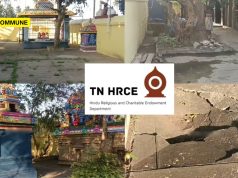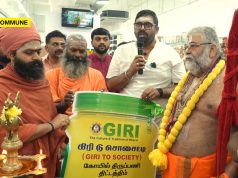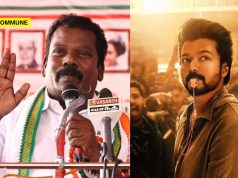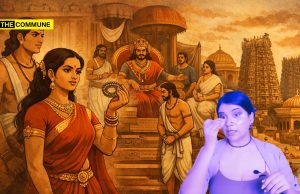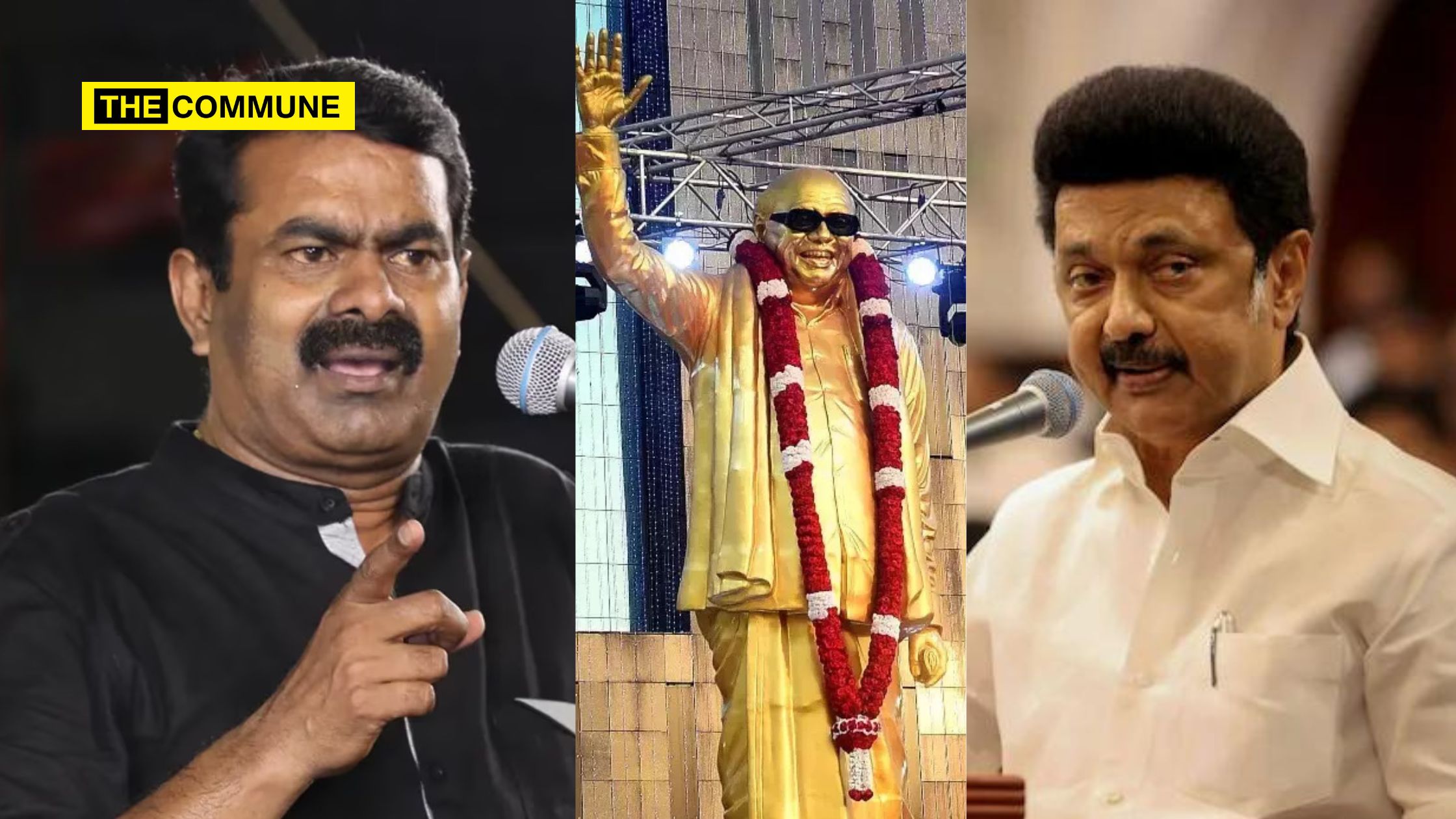
Naam Tamilar Katchi (NTK) Chief Coordinator Seeman, who recently faced a defamation case for his comments on former DMK Chief Minister Karunanidhi, has issued a sharp warning to the DMK regarding the future of the statues of Kalaignar (Karunanidhi). Seeman linked the potential destruction of such statues to events in other countries, citing examples such as the removal of the statue of Sheikh Mujibur Rahman in Bangladesh and the demolition of statues of former Andhra Pradesh Chief Minister Y S Rajasekhara Reddy by the public. He asserted that if Tamil were in power, such statues (Karunanidhi) would be torn down, just as seen in these global examples.
Seeman made these comments during a press interaction at the Thoothukudi Vagaikulam Airport on 11 November 2024. Seeman’s statements were delivered in a strong tone, warning the DMK not to take their power for granted, adding that if a Tamil leader with integrity came to power, they would likely destroy all such statues. He was referring to past instances where public sentiment had led to the destruction of monuments, emphasizing that such actions would be repeated if a true Tamil patriot did not hold the power in Tamil Nadu.
Seeman warned, “Just take a look at Bangladesh and Sri lanka that are nearby. Look at what happened to the father of its nation Mujibur Rahman, where is it? like the same Jagan Mohan Reddy kept his father’s name Rajasekhara Reddy to all the places. Chandrababu Naidu was not even in andhra, he was in Delhi before he took oath, they have buldozed it to nothing. The same situation will happen here, people’s money is going to become a waste of money. Even if you cry on that day, it won’t come. Wont this power will go another someday? If it goes to a good self respected tamil if will be bulldozed. You should be very carefull in plays.”
Seeman issued a stark warning, saying, “Take a look at what happened in Bangladesh and Sri Lanka, next to us. Look at what happened to the the founder of Bangladesh, Mujibur Rahman’s statue—where is it now? Similarly, in Andhra Pradesh, Jagan Mohan Reddy named everything after his father, Rajasekhara Reddy, but when Chandrababu Naidu was in Delhi, before even taking office, they had those (statues bulldozed). The same thing will happen here. All the people’s money spent will be wasted, and no matter how much you cry, it won’t bring it back. Won’t this power go to someother one day? If it falls into the hands of a true, self-respecting Tamil, those (statues) will be demolished. So, you need to be very careful and play.”
கலைஞர் சிலைகள் உடைக்கப்படும் – சீமான்#Thoothukudi #Seeman #NTK #NewsTamil #NewsTamil24x7 pic.twitter.com/V3kbdDL46f
— News Tamil 24×7 (@NewsTamilTV24x7) November 11, 2024
Seeman also voiced concerns about Indian fishermen allegedly fishing illegally across the maritime border with Sri Lanka. He responded to statements made by Sri Lankan President Anurakumar Dissanayake, who had warned of strict actions against Indian fishermen. Seeman questioned why similar action had not been taken against Kerala fishermen and criticized Sri Lanka for its past violence against Tamils, including the killing of Tamil fishermen and the destruction of their nets. He demanded that India’s central government—comprising the Ministry of External Affairs, the Ministry of Defense, the Prime Minister, and Tamil Nadu’s Chief Minister—take stronger steps to address the issue, even suggesting an economic embargo on Sri Lanka as a means of exerting pressure.
In a further escalation of his rhetoric, Seeman reiterated his call for an economic embargo on Sri Lanka, which he called a “small country” that was repeatedly taking actions against Tamil fishermen. His remarks were not just limited to the fishermen’s issue but also tied into his broader nationalist agenda. Seeman stressed that Tamil nationalism and Dravidian ideals should work together for the development of the Tamil people, but warned that Dravidian politics, as practiced by the DMK, would ultimately lead to the downfall of Tamil interests. He emphasized that while Tamil nationalism could be a unifying force, Dravidian politics could turn the state into a “graveyard.”
As the 2026 Tamil Nadu elections approach, Seeman expressed confidence that his political ideas and strategies were gaining traction. He claimed that all political parties were following his lead and adopting similar strategies to appeal to voters, particularly in terms of populist measures such as monetary promises for the underprivileged. He also criticized political parties for their election-time rhetoric, claiming that leaders would make promises to secure votes but were ultimately uninterested in the real needs of the people.
Subscribe to our Telegram, WhatsApp, and Instagram channels and get the best stories of the day delivered to you personally.

